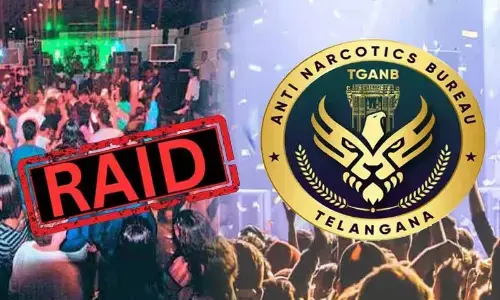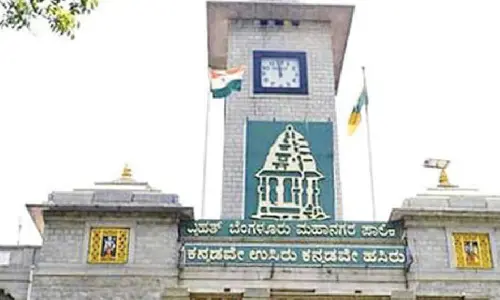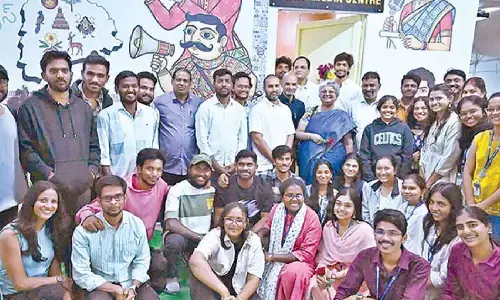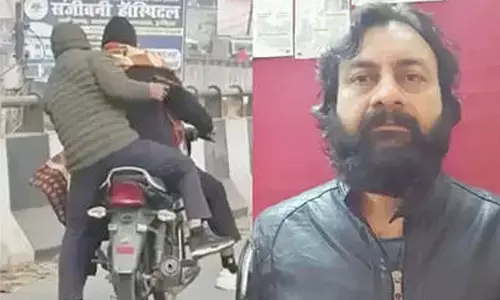The root of the Irish Famine
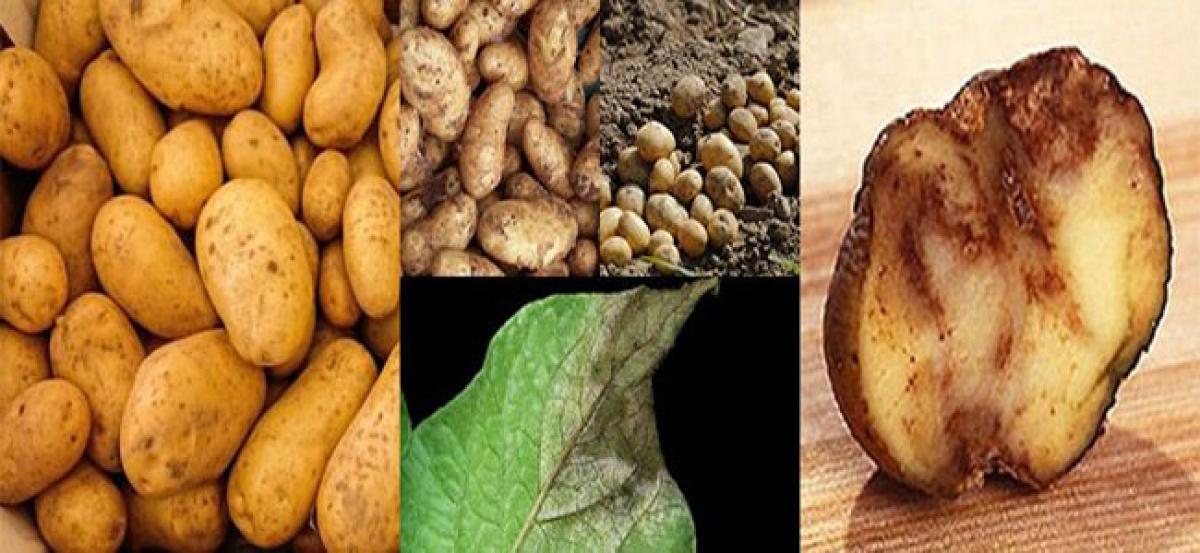
I’m not helping out in the fields today”, said Maria, standing at the door of their small hovel, with an air of importance. “I am wearing my new dress, and I must not spoil it. I must look my best when we go to the fair this evening!”“Well, it’s not evening yet, sister”, said her older brother Nolan, giving her a gentle push. “You’ll still have to help.
“I’m not helping out in the fields today”, said Maria, standing at the door of their small hovel, with an air of importance. “I am wearing my new dress, and I must not spoil it. I must look my best when we go to the fair this evening!”“Well, it’s not evening yet, sister”, said her older brother Nolan, giving her a gentle push. “You’ll still have to help.”
“The Great Famine”, or “The Great Hunger”, that occurred between 1845 and 1849, is the greatest disaster in Ireland’s history, with the culprit being a fungus called Phytophthora infestans, that causes the ‘Late Blight’ disease in Potato. The Potato (Solanum tuberosum) is native to Peru, in South America, and was introduced in Ireland by Spanish conquistadors only in 1590.
However, it soon became a popular crop, as it was cheap, and nutritious as well. When the famine struck in 1845, 8 million people depended on potatoes as their staple meal, and especially people in the rural areas, could afford almost nothing except potatoes.
Ships from North America to England carried the fungus to Dublin, and soon, the fungus spread to large areas practising potato cultivation.
The fungus caused potato leaves to turn black with a watery rot, starting with brown freckles of patches on the leaves, that slowly spread with a yellowish border. When potatoes were pulled from the ground, they appeared fine, but rotted very soon.
The insides of the tubers would turn brown, starting from the skin, and would finally turn into soggy, foul-smelling masses.
In just four years, over a million of Ireland’s population died from disease and starvation, and through forced emigration, Irelands' population was reduced by another two million.
Potato blight is still a difficult disease to control, because potatoes do not have “seeds” and the potato tubers must be used to grow the next crop. If the tubers are infected with the fungus but go undetected, the next crop fails too.
“Why? Oh… why?” groaned Maria. “Can’t I just have a holiday? I already finished my work at the textile mill for today. Do I have to work on the fields too?”
“There are no holidays when you’re poor, Maria”, came Maria’s mother’s voice. “And moreover so, when we work on somebody else’s land; you know how angry the landlord will be with your father if we didn’t finish our share of work for today.”
“Be careful with that dress, child”, scolded her father. “That’s got to last you for another three or four years.” He walked out of their hovel, while Maria stood by and sulked. “It’s only a dress from a third-hand dress shop”, she muttered. “And far too big for me anyway.”
“Do you know how much we spent even on that third-hand dress?” said her mother gravely. “We used up more than half our savings for it. And what do you do? You refuse to work!”
“I never said I wouldn’t work”, said Maria, going red in the face. “I suppose I should change out of this and wear one of my old dresses and that tattered pinafore again”, she sighed.
Her mother glared at her, but did not tell her anything more. “I wish we weren’t so poor”, thought Maria as she put on her old frock again and adjusted her frayed bonnet. “I suppose things couldn’t get any worse.”
It was the year 1845, and unknown to them, things were about to get much worse. Fourteen year old Maria and her family were extremely poor, and belonged to the working class.
They were farm labourers who worked on the potato fields of the rich landlords. They hardly had enough to eat, and were heavily dependent on the cheapest food available: potatoes.
The children were illiterate too, as their parents couldn’t afford to send them to school. Even sending them to the public school was unthinkable because that would mean losing the additional income the family got. While Nolan worked as a chimney sweep, Maria helped out at a local textile mill.
When Maria joined Nolan on the way to the potato fields, he told her, “I heard that Eric is going to that public school now. I suppose a bit of education might make him rise above the problems of our lot.”
“Oh, I don’t think so”, said Maria cheerfully. “I know I couldn’t be much bothered with studying; I would probably be called a dunce by everyone. I wonder what they study there.”“Oh, I know”, said Nolan. “Reading, Writing and ‘Rithmetic.”
“What’s ‘Rithmetic?” asked Maria. “If I knew that, I wouldn’t be working here on these fields, would I?” retorted Nolan.
The two set about helping with the potato harvest. Summer was almost upon them, and this would be the last harvest before summer.
Their meals consisted of potatoes and nothing else; that was the cheapest food they could afford. They had heard their parents reminiscing of the good old days when oats and milk had been affordable, but now it was beyond the reach of the Irish poor.
“Something seems to be wrong with these plants”, remarked Maria to Nolan as she set about her work. “Look at these brown spots on the leaves! And they seem to be spreading too.”
“All the plants have them”, said Nolan. “The potatoes seem alright.”Maria glanced doubtfully at the potatoes. “They have some dark patches”, she said.“Some of these leaves have shrivelled though”, said Nolan, carefully examining the plants. “These… seem to be rotting away. The stems too.”
“Maybe we should tell Father”, said Maria. “And he can inform the landlord. What if it’s a disease?”But their father brushed it aside. “The landlord would laugh at me or tell me to keep my nose out of such matters.”
However, at the children’s insistence, the poor man approached the landlord. But as predicted, his employer was rude, and ordered him to get back to work on the fields. Work went on as usual, and a few weeks passed before they heard the news. All the harvested potatoes that had been stored had gone rotten!
“I told you there was something suspicious about those potatoes”, whispered Maria to Nolan, as they stood amongst the crowd outside the storerooms, holding their noses. The foul stench was unbearable.
“The rot started from the skins and spread inside the tubers”, said their father that evening. “I spoke to the labourers from the other fields too. It’s the same everywhere. Most of the potatoes harvested this time are rotten. Gone.”
“Ah, well, the crop just failed this time”, consoled their mother. “Next season we might get a better harvest.”Summer was a lean season for potatoes anyway, so the family didn’t suffer much. They still had some potatoes stored away, left over from the previous season, and some salted pork.
But the next potato crop failed too! It was the same—a fungal growth that rotted the plant from the inside, and infected the tubers— called the Potato Blight disease. Things became difficult for Maria and her family. Nolan tried to find more work, but nobody was ready to give him any because everybody seemed to be struggling for money.
They tried selling some of their possessions, but they were far too few and far too invaluable to get them anything more than a little money to buy some oats for a few days. It was the same at every poor Irish man’s home; starvation was setting in.
Three years passed. Maria had become thin, and they couldn’t find work anymore. The potato crops had failed season after season, and the land was affected by a great famine. The landlord refused to pay them or provide them with food.
Her parents saved up every morsel for Nolan and Maria, going hungry themselves. Their starvation led to sickness, and soon, their father died, followed by their mother. The landlord showed no mercy. He evicted Nolan and Maria from the little shack, and they were left to fend for themselves out on the streets.
“People are leaving Ireland”, said Nolan sadly to Maria. “Maybe we should go and try our luck elsewhere too.”
Maria was sobbing. “I have arranged with a kind family to take you with them to Dublin”, said Nolan. “Try to find work as a housekeep in one of the houses of the royal families. At least you will not go hungry”, urged Nolan.
“Then what about you?” asked Maria. “Won’t you come with us?”Nolan looked away. “They don’t have enough food to feed two mouths, and I have no money to give them”, he said. “Don’t worry about me, Maria. I have found another way out.” That night, both slept on the streets, under a tree. Maria couldn’t sleep well. She dreamt of her childhood, her parents, and cried in her sleep when she dreamt of Nolan being taken away from her.
A loud commotion woke her up. It was already morning, and a crowd had gathered. The police were taking away a young man by the scruff of his neck. Maria realized it was Nolan! She ran behind them. “Nolan! What have you done?”
“He broke into his landlord’s house”, said one of the policemen.
“Getting caught was my plan, Maria”, Nolan whispered. “I’ll be sent to a prison in Australia, where I will not starve.” Maria watched helplessly as she watched Nolan being taken away, never to see him again.









